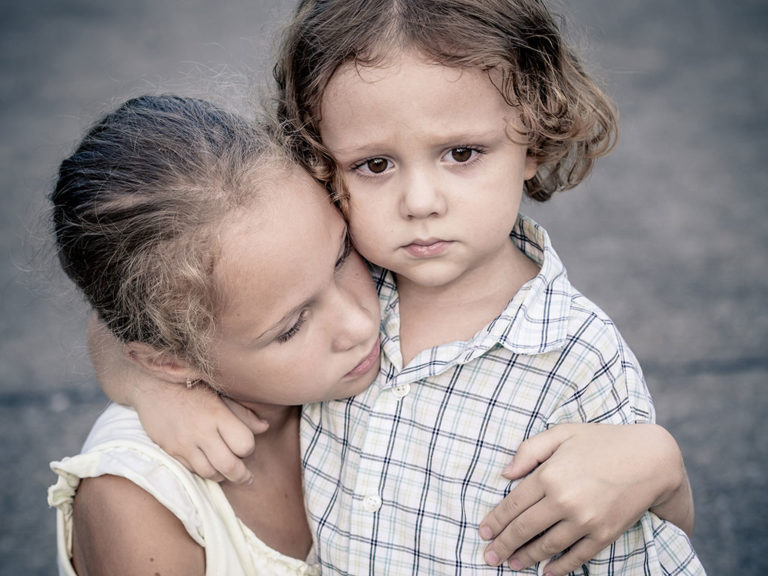My brother Ricky called me, his big sister whenever he needed help. I threw on my hero’s cape and flew to his side. He had been taught there were no consequences to substance use. I was taught to be over-responsible for EVERYTHING.
One time, after a night of binge drinking, he needed a ride to the ER because he couldn’t stop throwing up. I was more than happy to get out of bed and save the day. I stayed up all night with him and then went to work the next morning at 8:00am with no sleep, but a smile of satisfaction on my face. Yet again, I saved the day – I mean my brother.
Why Was I So Set On Helping Ricky?
Since that night, I’ve found recovery in Al Anon meetings, and I’m learning to question my motives. My desire to help Ricky was fear and my belief I could save him.
Above all – I Want To Save My Brother
I want him to live. I’m afraid he will die, and fear drives me to act first and think later. I was operating under the false pretense I could cure or control Ricky’s disease of Alcohol Use Disorder, formerly called alcoholism. I wasn’t really fighting against Ricky. My opponent was much more formidable and Ricky’s well being hung in the balance. There’s nothing I can learn in recovery that will change the progression of Ricky’s disease. According to my Al-Anon literature:
“What keeps me holding onto the illusion that I have the power to change someone else?”
Until he seeks help, his health will continue to decline.
I Was Also Sick
It felt good to be needed, but I took the role of over-responsible big sister from supporting actress to lead character. It’s a common phenomenon in children of alcoholics. Alcohol Use Disorder is a family disease that affects generations; Ricky and I were both affected, just in different ways. I followed my Mom’s lead of care-taking, rescuing, and resenting, which is otherwise known as codependency. Joni Edelman’s explains in 10 Things To Know About Children Of Alcoholics:
We are in charge of everything — even if we don’t want to be (but we always want to be). This manifests itself mostly in female daughters and especially the oldest female daughters of an addict mother (we have our own books, even). Because these women — like myself — have been forced to take on the responsibilities of the incapable parent(s), they will be the first person to take on everything — to their own detriment.
Responsibility is the name of the game. And we will take responsibility for everyone; their emotions, their needs, their lives. In fact, it’s easier to take responsibility for everyone else than even ourselves.
How I Stopped Being Over-Responsible
I’m learning how to take care of myself whether or not Ricky ever gets help. My go to rule for me and Ricky is, “Live and let live.” Distancing myself from Ricky’s day-to-day activities is a good first step. In the rooms, we call this detaching. I also keep my mouth shut. I don’t ask questions, even simple ones like, “How are you?” Even at this simple, socially acceptable greeting, I must examine my motives. Why do I want to know how he is? Is it so I can weigh in on his pressing problems and rush to his aid.
The most effective tool I have is “Let go and let God.” Ricky’s AUD might end up taking his life. There’s nothing, absolutely nothing, I can do to stop it, but taking the time to work my recovery “Prevents two drownings,” as my sponsor often says. And in the end, this may let Ricky save himself.
More Articles To Read
This Is How To Stop An Argument Cold
Dealing With Addiction Issues: Why You Should Go To A Rehab
3 Tips To Calm Mom’s Codependent Relationship Woes





















